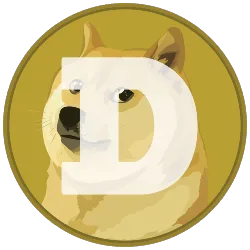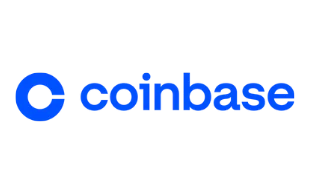
How we help you buy Dogecoin
Unlike other sites, we let you compare dozens of exchanges where you can buy Dogecoin based on trading fees and payment methods, meaning it's easier to find the cheapest and easiest places to buy DOGE.

By
Thomas StelzerReviewed by
Fred SchebestaUpdated

Unlike other sites, we let you compare dozens of exchanges where you can buy Dogecoin based on trading fees and payment methods, meaning it's easier to find the cheapest and easiest places to buy DOGE.
Best for beginners

Best for long term investors

Best Overall

"Top picks" are those we've evaluated to be best for certain product features or categories – you can learn more in our full methodology. If we show a "Promoted Pick" it's been chosen from among our commercial partners based on factors that include special features or offers, and the commission we receive.
Keep in mind that these picks are suggestions and that the best crypto exchange for you will depend on your individual needs. There are other products on the market not included in our picks.
The king of memecoins, Dogecoin (DOGE) is the original novelty cryptocurrency, the favourite of Elon Musk and also one of the biggest cryptocurrencies in the world.
From a value of less than US$0.0001 in 2015, it's possible 1 Dogecoin could soon be worth more than US$1.
If you're looking to buy DOGE in Australia, the easiest option is buying it through a recognised crypto exchange that lets you trade using Australian dollars.
You can follow the steps below to get started:
If this is your first time buying cryptocurrency, you might want to look for a platform that accepts Australian dollars, like Kraken, CoinSpot, Swyftx or OKX.
Don't worry too much about extra features or coins for now – you can always sign up with another exchange later.
Use the table below to choose a platform that meets your needs and click the Go to site button to get started.
We currently don't have that product, but here are others to consider:
How we picked theseThe best place to buy Dogecoin in Australia is arguably via a crypto exchange that lets you deposit AUD for free and offers Dogecoin (DOGE) spot markets, like Kraken or CoinSpot.
A spot market is like a marketplace where you can buy and sell cryptocurrencies directly with other users. This means you can actually set the price you want to buy Dogecoin at (known as a "limit order"), instead of simply getting the current price.
Spot markets also offer much lower trading fees than instant purchase options, which can charge more than 10 times as much as the spot market. For example, CoinSpot charges a 0.10% trading fee when buying Dogecoin with AUD on the spot market, but charges a 1% (plus spread) if using the instant purchase method.

"Dogecoin remains the world's largest memecoin and occupies a unique position in crypto because of its brand recognition and longevity. According to Finder's expert panel, Dogecoin is predicted to hit a price of more than US$2 by 2030.2"

| Coin symbol | DOGE |
|---|---|
| Coin Marketcap | AUD$16,255,854,291 |
| Total DOGE supply | 168,642,743,127 |
| Circulating DOGE | 168,617,203,127 |
| Current price | AUD$0.1485638 |
| All time high | AUD$1.7248 |
| All time high date | May 08, 2021 |
Historical prices compared with the price of $0.1485638.
| 1 hour | 0.30% |
|---|---|
| 24 hours | 0.59% |
| 7 days | -9.70% |
| 14 days | -22.28% |
| 30 days | -30.86% |
|---|---|
| 60 days | -31.47% |
| 200 days | -63.44% |
| 1 year | -62.68% |
Despite dipping in September, the price of Bitcoin is up over 8% in the last month with Ether following at 4%. Meanwhile, Altcoins have been having a moment with BNB one of the top performers, jumping over 20% in the last 30 days alone, XRP up 6% and SOL having jumped 11%.
Meanwhile crypto exchanges in Australia will soon need to hold a financial services license (AFSL) under new draft legislation. Once rolled out, it means exchanges will be held to the same reporting and compliance standards as superfunds and online brokers.
 Kylie Purcell is the Senior Investments Editor for Finder.
Kylie Purcell is the Senior Investments Editor for Finder.
Yes, it's possible Dogecoin could be worth $1 at some point in future. It briefly reached a price of almost US$0.70 in 2021, and it's feasible it could go even higher in a subsequent crypto bull market.


Tom Stelzer is a journalist with 6 years of experience covering personal finance, specialising in investment and cryptocurrency. With a Master of Media Arts and Production and a Bachelor of Communications in Journalism from the University of Technology Sydney, Tom provides expert analysis on digital assets and market trends, helping readers navigate the fast-evolving world of finance. See full bio
Find a better deal, save on your bills and get a free gift card. Sign up to be the first to hear about new Finder Rewards.
This guide provides step-by-step instructions on how to buy , lists some exchanges where you can get it and provides daily price data on .
This guide provides step-by-step instructions on how to buy , lists some exchanges where you can get it and provides daily price data on .
This guide provides step-by-step instructions on how to buy , lists some exchanges where you can get it and provides daily price data on .
This guide provides step-by-step instructions on how to buy Hedera, lists some exchanges where you can get it and provides daily price data on HBAR.
A panel of industry specialists give us their predictions on the price of Binance Coin to 2035.
This guide provides step-by-step instructions on how to buy , lists some exchanges where you can get it and provides daily price data on .
The easiest way to buy XRP in Australia is from a cryptocurrency exchange. Read our guide for a simple explanation of how to get started.
Learn how to buy Binance Coin in Australia with our simple step-by-step guide and tips on what to know before you get started.
Learn how to buy Cardano in Australia with our simple step-by-step guide and tips on what to know before you get started.
Learn how to buy Litecoin in Australia with our simple step-by-step guide and tips on what to know before you get started.
Finder makes money from featured partners, but editorial opinions are our own.
Finder is one of Australia's leading comparison websites. We are committed to our readers and stand by our editorial principles.
We try to take an open and transparent approach and provide a broad-based comparison service. However, you should be aware that while we are an independently owned service, our comparison service does not include all providers or all products available in the market.
Some product issuers may provide products or offer services through multiple brands, associated companies or different labeling arrangements. This can make it difficult for consumers to compare alternatives or identify the companies behind the products. However, we aim to provide information to enable consumers to understand these issues.
We make money by featuring products on our site. Compensation received from the providers featured on our site can influence which products we write about as well as where and how products appear on our page, but the order or placement of these products does not influence our assessment or opinions of them, nor is it an endorsement or recommendation for them.
Products marked as 'Top Pick', 'Promoted' or 'Advertisement' are prominently displayed either as a result of a commercial advertising arrangement or to highlight a particular product, provider or feature. Finder may receive remuneration from the Provider if you click on the related link, purchase or enquire about the product. Finder's decision to show a 'promoted' product is neither a recommendation that the product is appropriate for you nor an indication that the product is the best in its category. We encourage you to use the tools and information we provide to compare your options.
Where our site links to particular products or displays 'Go to site' buttons, we may receive a commission, referral fee or payment when you click on those buttons or apply for a product.
When products are grouped in a table or list, the order in which they are initially sorted may be influenced by a range of factors including price, fees and discounts; commercial partnerships; product features; and brand popularity. We provide tools so you can sort and filter these lists to highlight features that matter to you.
Please read our website terms of use and privacy policy for more information about our services and our approach to privacy.
We update our data regularly, but information can change between updates. Confirm details with the provider you're interested in before making a decision.
How likely would you be to recommend Finder to a friend or colleague?
Our goal is to create the best possible product, and your thoughts, ideas and suggestions play a major role in helping us identify opportunities to improve.
Need help? Contact Support